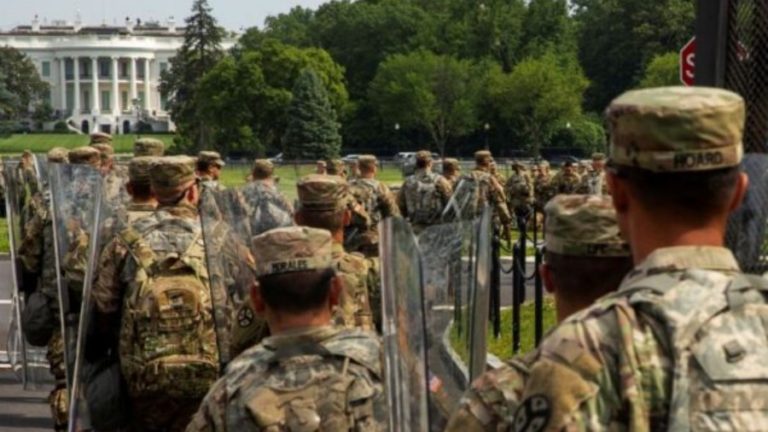Mexican-US Ties Are Deteriorating Due to Drug Indictments & Leaked Spy Reports
In the face of Mexico’s inability to stop cartel-connected threats from spilling over its northern border, it makes perfect sense why the US would unilaterally infiltrate some of those infamous groups and spy on their communications. At the same time, however, this is indisputably a violation of Mexico’s sovereignty. Moreover, the US’ eavesdropping on the Mexican Armed Forces is an unfriendly action which shows how little the Pentagon trusts its counterparts.
The aftermath of last month’s abduction of four US citizens in Mexico led to the conclusion that “It’s Unlikely That The US & Mexico Will Ever Meaningfully Cooperate Against The Cartels”, hence why the US is taking unilateral action against them as proven by the latest drug indictments. The Department of Justice announced charges against leading cartel figures last week in a press release that also boasted about how “the DEA proactively infiltrated the Sinaloa Cartel and the Chapitos network”.
That particular disclosure prompted a furious reaction from Mexican President Andres Manuel Lopez Obrador, who’s popularly known by his initials as AMLO. He accused the US of “abusive interference”, condemned the presence of its “agents” in his country, and promised that there’ll never be any “submission” on his country’s part to its northern neighbor. At the same press conference, AMLO also lashed out at the latest Pentagon leaks about Mexico that were reported on several days prior.
The Washington Post informed their audience that not only was the US spying on the same cartel that abducted four of its citizens last month, but that it’s also eavesdropping on the Mexican military after one of the documents claimed that there are tensions between its Army and Navy over the Drug War. In response, AMLO accused the US of “espionage” and vowed to “safeguard information” from its Armed Forces. Quite clearly, Mexican-US relations have deteriorated in recent days due to these developments.
As was noted in the analysis that was hyperlinked to in the introduction, each country has legitimate interests, particularly with respect to ensuring their security from the interconnected unconventional threats posed by cartels, drugs, human trafficking, and violent crime. In the face of Mexico’s inability to stop the aforesaid from spilling over its northern border, it makes perfect sense why the US would unilaterally infiltrate some of those infamous groups and spy on their communications.
At the same time, however, this is indisputably a violation of Mexico’s sovereignty. Moreover, the US’ eavesdropping on the Mexican Armed Forces is an unfriendly action which shows how little the Pentagon trusts its counterparts. To be sure, Mexico probably has secret agents embedded in the US branches of its national cartels and is likely also spying on it far beyond that or at least attempting to, but its related operations almost certainly pale in comparison to the US’.
AMLO’s sharp criticism of the US’ interference in his country’s domestic affairs shows that he’s had enough of its meddling even if Mexico is unable to stop it. The power asymmetry between these two keeps his tangible reaction to all of this in check since he knows that there’s a risk of severe punishment if he crosses his neighbor’s “red lines”. Nevertheless, the optics are still worth analyzing because there’s no doubt that he’s making a public display of standing up to the US.
This will likely lead to part of the population rallying around him for patriotic reasons even if they dislike some of his domestic policies while having the opposite effect when it comes to Americans feeling increasingly uncomfortable with everything that’s going on in Mexico nowadays. The cartel-facilitated fentanyl crisis affects millions of people either directly with respect to them having someone close who’s overdosed from it and/or indirectly in terms of addicts driving local crime waves.
The more that AMLO condemns US law enforcement’s infiltration of the cartels and the Pentagon’s espionage operations against them, the more that Americans will begin to consider him a threat, thus potentially galvanizing public opinion in the direction of the same punitive measures he seeks to avert. The Republicans are already talking about designating cartels as terrorists and even speculating about cross-border strikes so this issue is expected to become a national one ahead of next year’s elections.
The aforementioned rhetoric will in turn accelerate the spread of patriotic sentiment in Mexico, with these dynamics contributing to each society viewing the other with maximum suspicion and as pressing national security threats, thus risking the emergence of a “security dilemma”. Should this concept come to characterize their bilateral ties, then the danger exists that the US might feel pressured by public opinion into unilaterally ordering some sort of action (even if mostly symbolic) against Mexico.
With or without this happening, public opinion in Mexico might pressure the government into doing something against the US too, even if this is (also?) mostly symbolic. In practice, it could flirt with comprehensively expanding economic ties with its Chinese rival exactly as Brazil’s Lula has sought to do as part of his envisaged “balancing” act between those two, however clumsily it’s ultimately executed. Mexico is right next to the US, however, so this could inadvertently provoke a major overreaction from it.
While the scenarios that were briefly described in the preceding two paragraphs remain speculative for the time being, there’s no denying that they’ll become increasingly possible the longer that Mexican-US tensions persist, especially if their bilateral ties come to be characterized by a “security dilemma”. This trend could eventually have serous strategic consequences in the New Cold War if it spirals out of control, which is why observers should keep a close eye on everything going forward.







